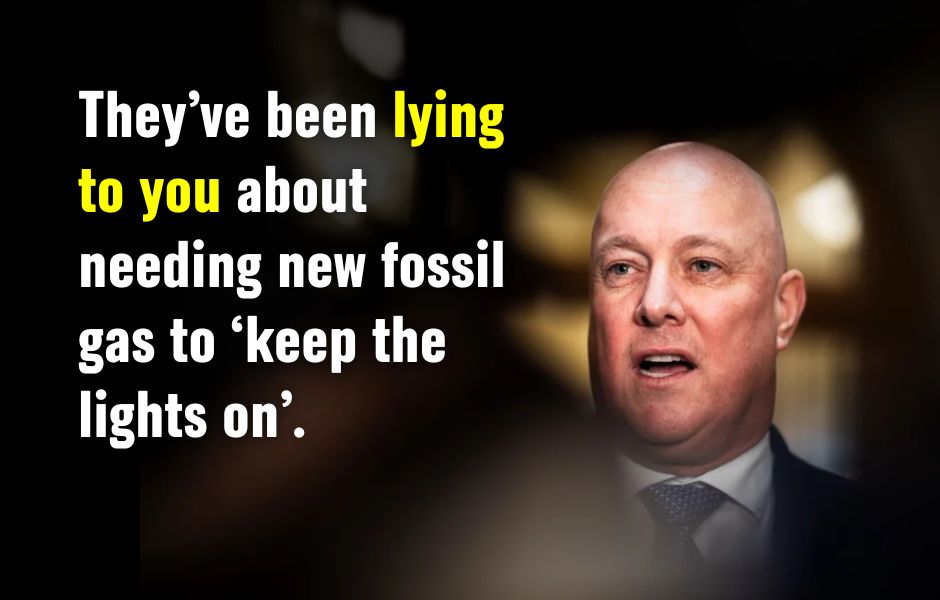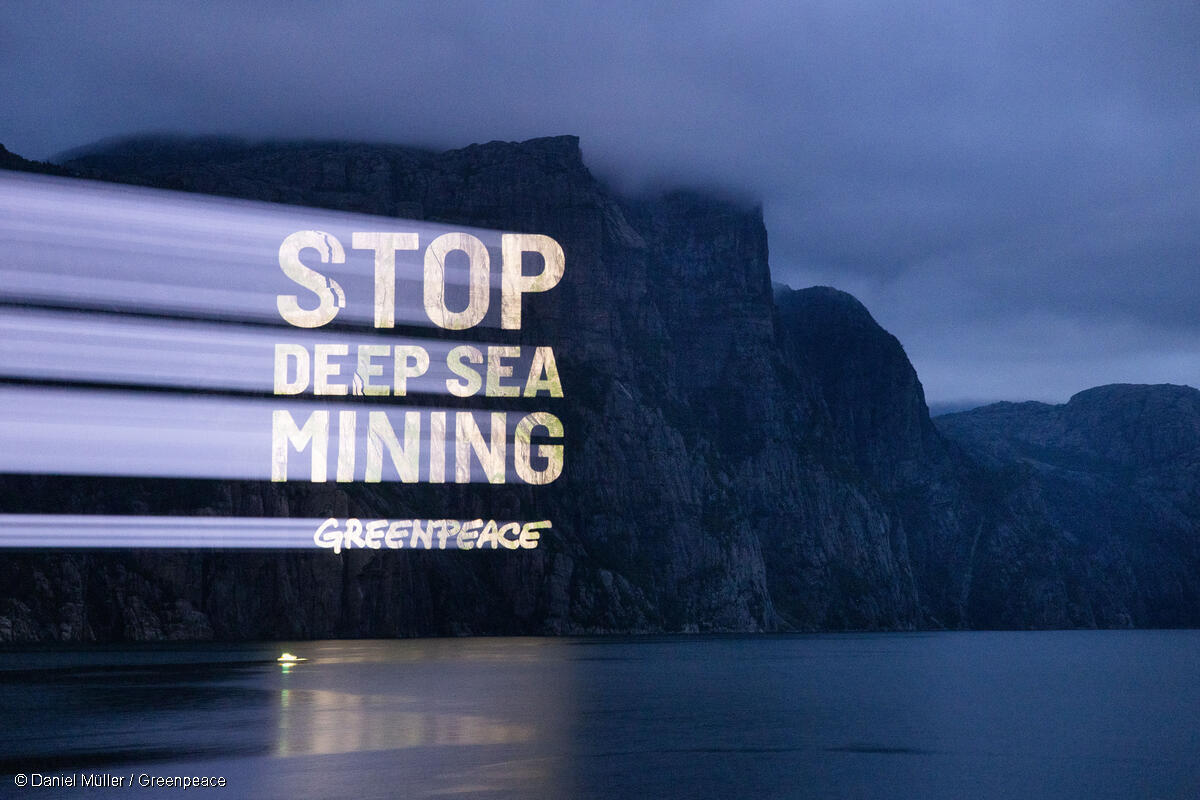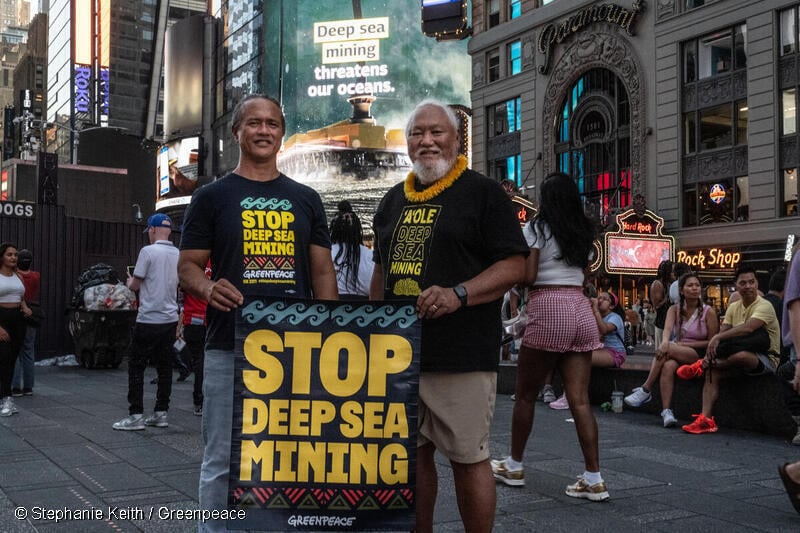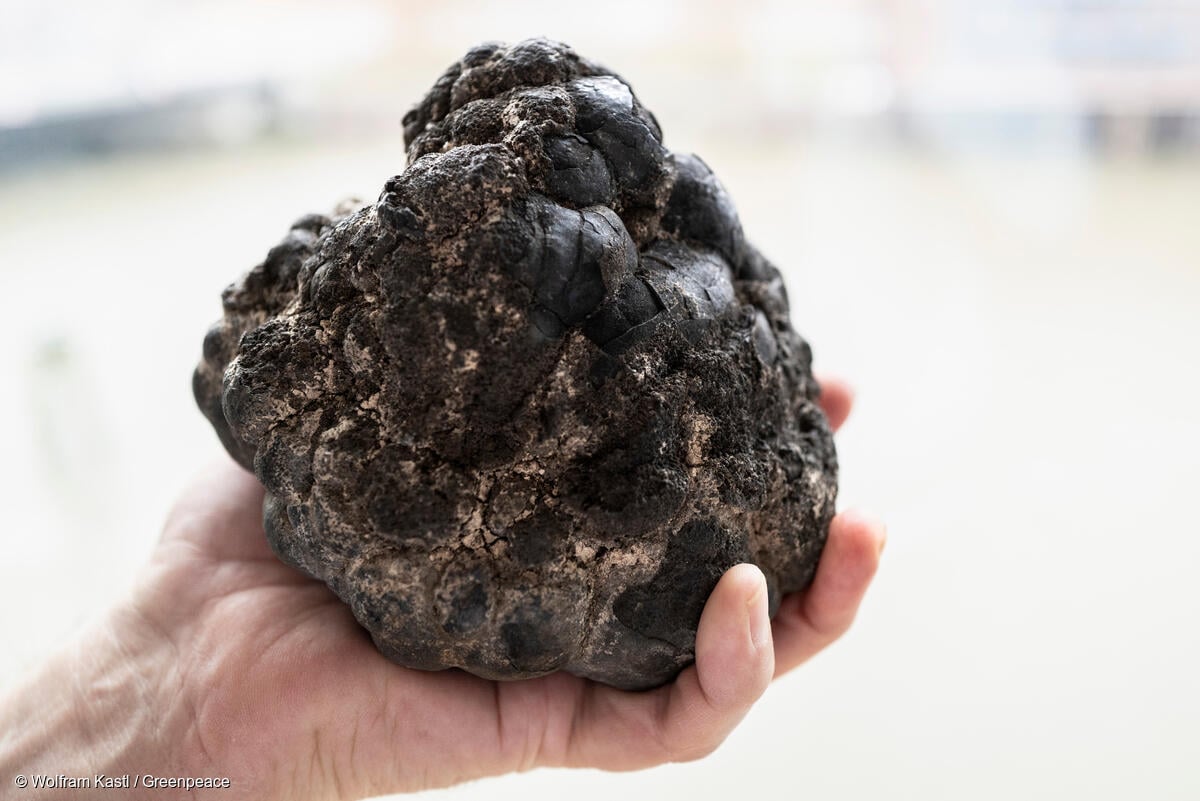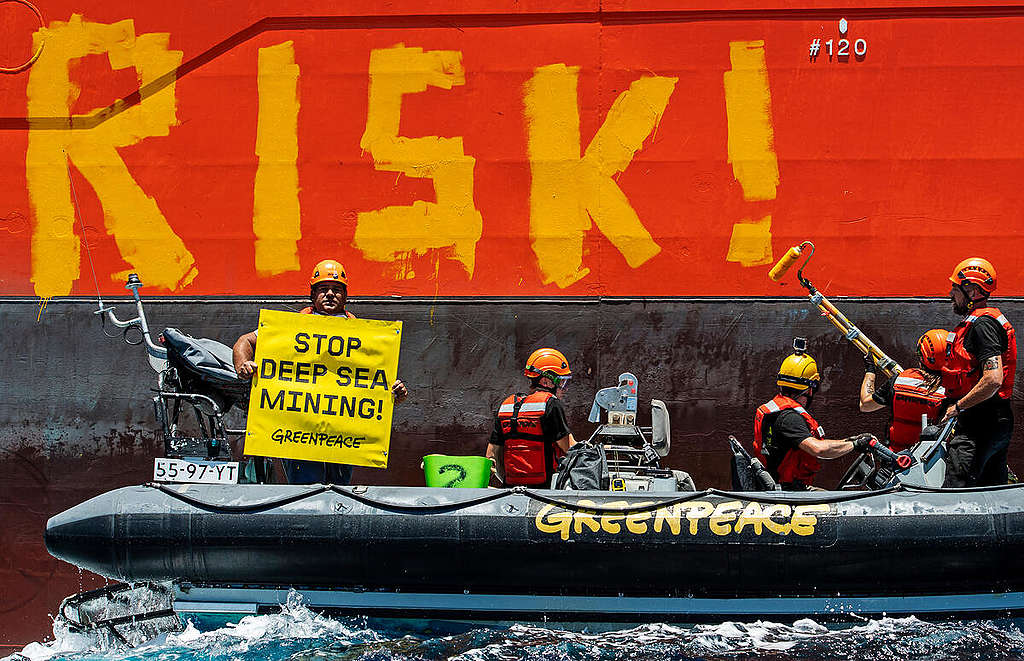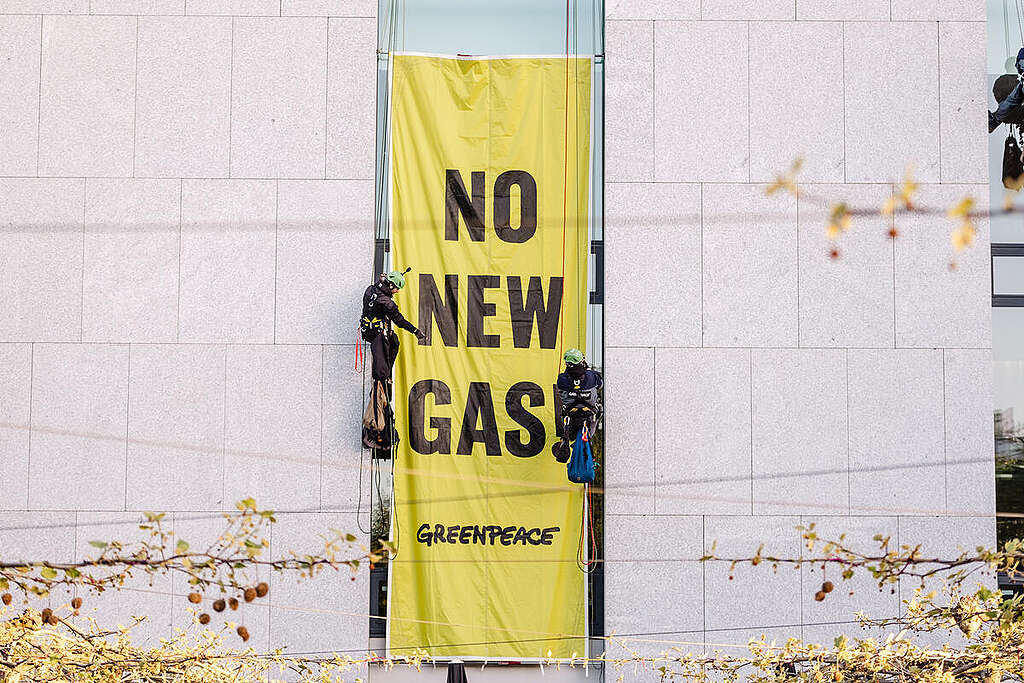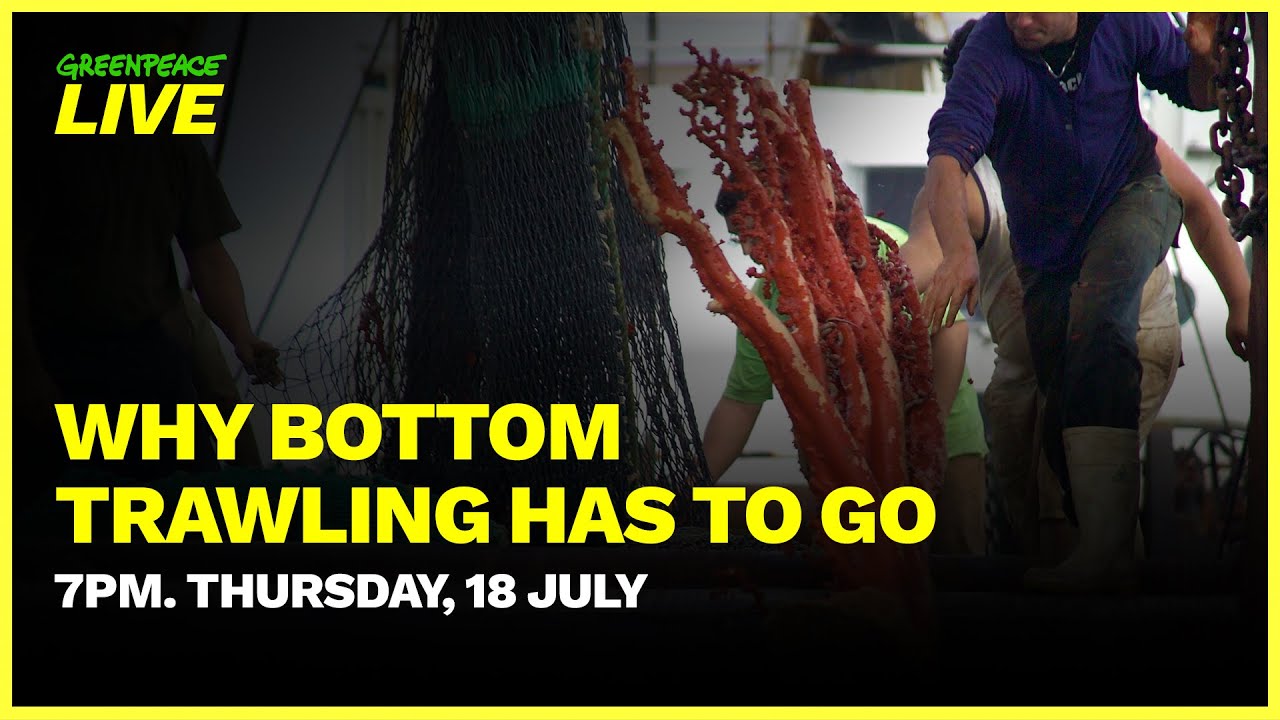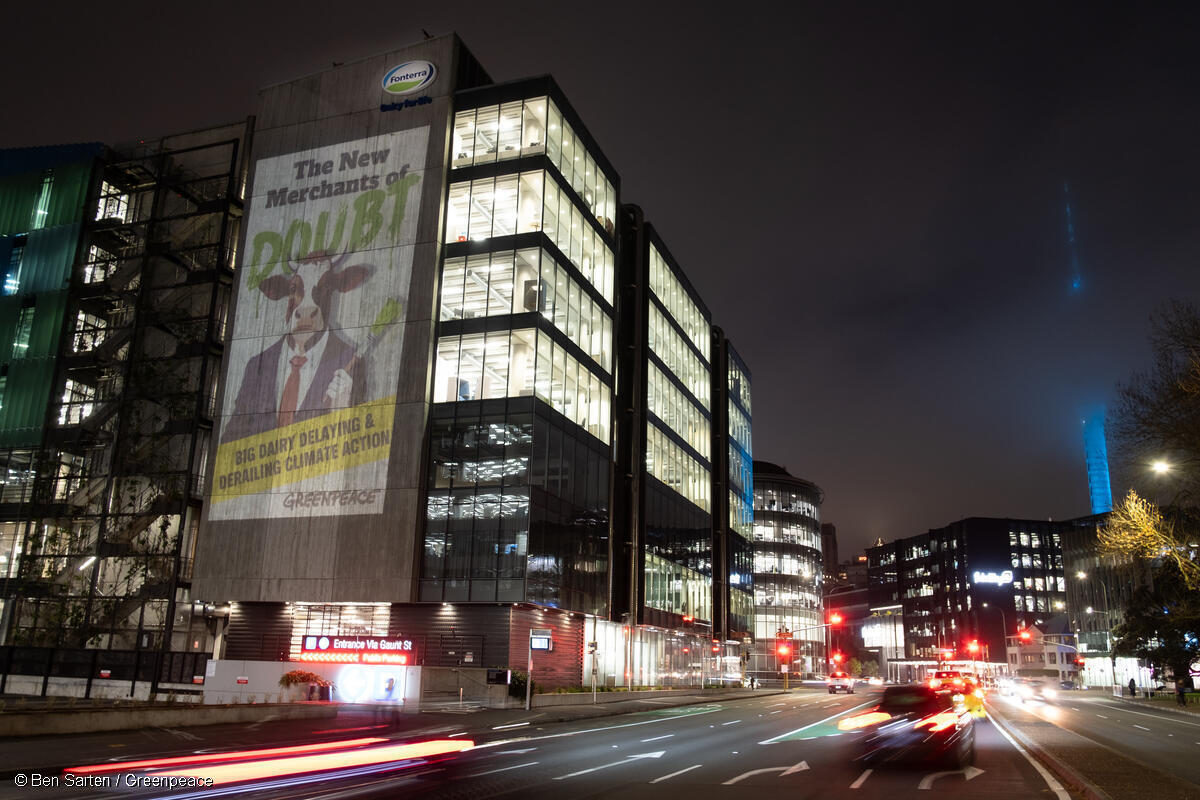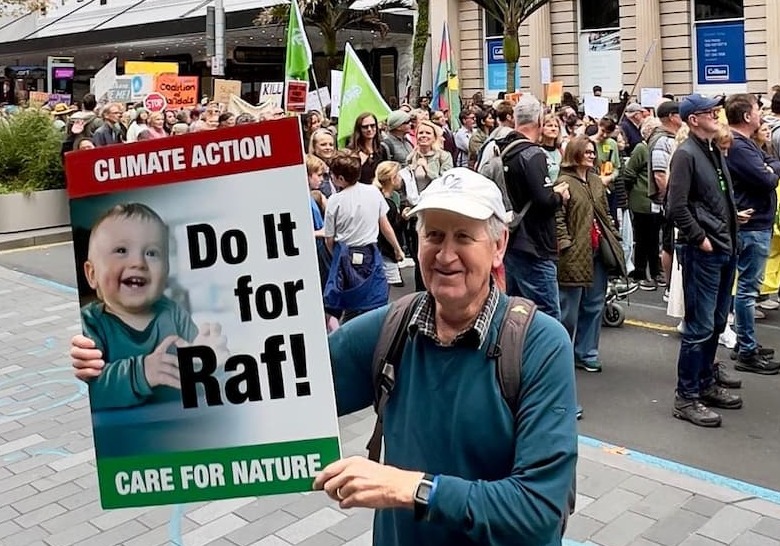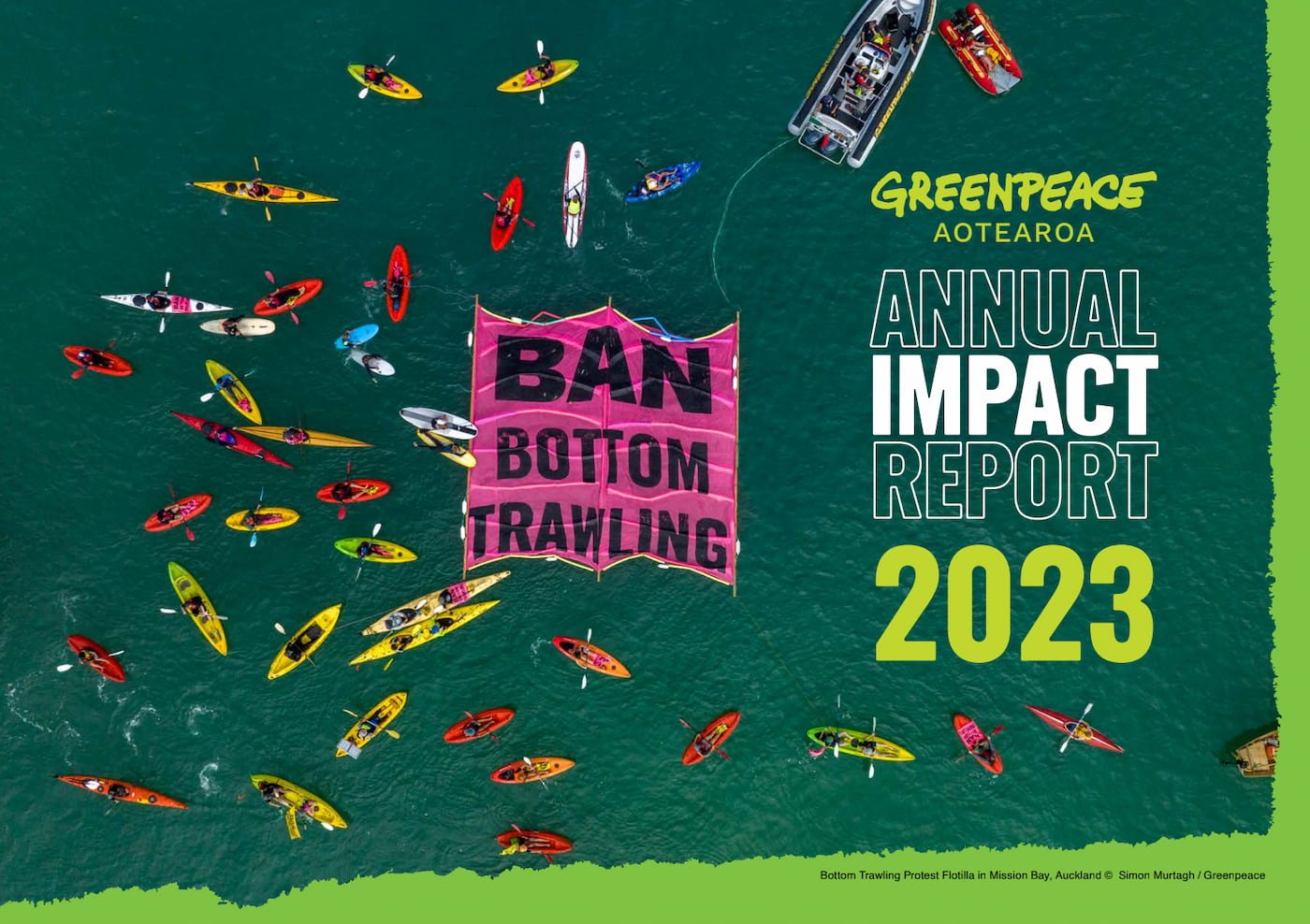-
Good News! New fossil gas NOT needed for energy security according to Govt report
They’ve been lying to you about needing new fossil gas to “keep the lights on”. There is no shortage of gas.
-
Greenpeace launches Arctic expedition to study vulnerable marine mammals in targeted deep sea mining area
Bergen, Norway – As the Norwegian government is moving forward with the opening of Arctic waters to deep sea mining exploration, Greenpeace Nordic and Greenpeace Germany set sail with a…
-
Calls for a moratorium on deep sea mining intensify following discovery of dark oxygen production at 5000m depths
Negotiations on whether to allow deep sea mining to go ahead at the International Seabed Authority (ISA), have been rocked by the publication of a groundbreaking study that reveals that the polymetallic…
-
Dark oxygen discovered in the deep sea spells trouble for seabed mining industry
Scientists have found a source of ‘dark oxygen’ 4,000 meters below the surface of the Pacific in the target zone for deep sea mining. The discovery could have far-reaching implications for science and the wannabe deep sea mining industry.
-
‘Dark oxygen’ discovery highlights the need to stop deep sea mining
A groundbreaking discovery has revealed that Metallic nodules found on the deep seabed in the Pacific ocean are a source of oxygen for nearby marine life. It’s a discovery that…
-
Investing in new gas infrastructure is like stepping on the accelerator of a car heading for a cliff
What we need to do is pull the handbrake. As newly (re-)elected Members of the European Parliament (MEPs) hold their first plenary session from 16 July, Greenpeace is urging them…
-
Greenpeace LIVE: Why we have to stop bottom trawling
In episode 3 of Greenpeace Live, we speak with a panel of three amazing guests who are protecting the oceans and vulnerable marine ecosystems. Karli Thomas from Deep Sea Conservation Coalition, marine scientist Kat Goddard, and keen fisher, environmentalist and presenter Mandy Kupenga (Get Your Fish On) will speak with Greenpeace campaigner Ellie Hooper on…
-
Fonterra exposed as major player in global attempts to undermine climate action
An international investigation is exposing Fonterra's role in derailing climate action around the world.
-
Inside the March for Nature
Green Burgers. That’s what protesters are, according to Shane Jones, NZ First MP, minister of many things, and master of the condescending quip.
-
2023 Annual Impact Report
One of the defining features of progressive policy change is its two-steps-forward-one-step-back nature. And so it was in 2023.

